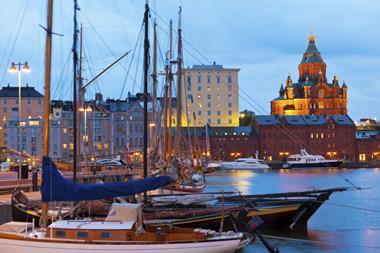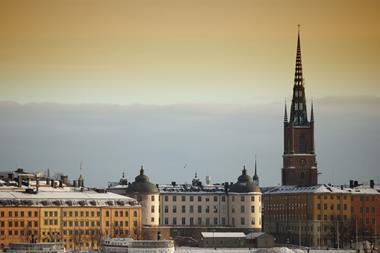Finnish pensions insurer Varma reported a 0.3% loss on investments in the first half as its CIO bemoaned the lack of sustainable economic growth in Europe, saying extreme monetary easing was only masking other problems in the continent.
In its interim report, Varma said the first half loss compared with the 4.3% profit generated in the same period last year.
The company’s total pension assets dipped to €41.3bn from €41.6bn at the end of December.
Varma’s executive vice-president and CIO Reima Rytsölä said: “Sustainable economic growth has been highly anticipated in Europe, but the path to growth always seems to be fraught with new uncertainties.”
He said the markets had recovered from the post-Brexit slump surprisingly quickly, and were now focused once more on central bank easing moves.
Noting that equity markets were indeed helped by central banks injecting more money after every setback, Rytsölä said: “The question is, how long can Europe’s other problems be swept under the rug with the help of ultra-light monetary policies?”
In absolute terms, Varma’s investment result was narrowly positive in the second quarter at €21m alone, but this did little to mitigate the €754m first quarter loss within first-half results.
Unlisted equities and private equities generated the highest returns for Varma between January and June, returning at 13.5% and 4.0% respectively, with the return for unlisted equities up from 6.4% in the same period last year and the private equities return down from 6.6%.
Equity investments ended the January-to-June period with a 3.1% loss, compared with an 8.3% profit in the first half of 2015, but fixed-income investments made a profit of 2.2%, up from 0.3%.
Real estate, meanwhile, produced a 2.6% return, compared to 3.4% in the same period last year.
Solvency levels weakened to 28.3% of technical provisions or €9.1bn, from 31.4% or €10.0bn at the end of December.
Risto Murto, Varma’s president and chief executive, said the company had recovered well from the financial crisis and that its solvency was at a high level despite equity market volatility.
“For pension investors, the markets have been quite sluggish for more than a year now, in a zero interest rate and zero return environment,” he said.
Rytsölä said one major difference between Europe’s and the US’s ability to emerge from the financial crisis was the state of their banks.
“US banks were cleaned up faster, which helped get the nation’s economy back on its feet,” he said.











